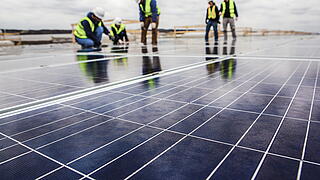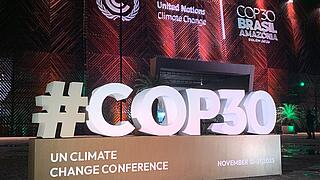Wind farms and solar power plants as features of the landscape, parking management and traffic calming in cities, nature conservation in agricultural or tourist areas – environmental projects often encounter opposition. There may be conflicting interests or land use requirements, which can create local challenges that weigh against the benefits to society as a whole. If maximum provision is made for timely and comprehensive citizen engagement, this opens up opportunities to improve planning and policy-making while reducing the potential for conflict. Participation involves much more than simply providing information for the public and goes further than the forms of consultation prescribed by law.
The Oeko-Institut conducts extensive research on topics relating to participation. The researchers study participation processes and facilitate these processes by sharing their scientific expertise. They also coordinate and support public consultations and suggest ways to improve and advance participatory formats, e.g. through dialogue events. The aim is to involve as many stakeholder groups as possible so that their interests are reflected in the solutions identified.











